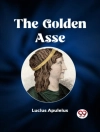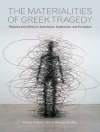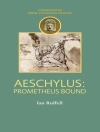Greek Tragedy sets ancient tragedy into its original theatrical, political and ritual context and applies modern critical approaches to understanding why tragedy continues to interest modern audiences.
- An engaging introduction to Greek tragedy, its history, and its reception in the contemporary world with suggested readings for further study
- Examines tragedy’s relationship to democracy, religion, and myth
- Explores contemporary approaches to scholarship, including structuralist, psychoanalytic, and feminist theory
- Provides a thorough examination of contemporary performance practices
- Includes detailed readings of selected plays
Innehållsförteckning
List of Figures.
Preface.
Introduction.
Part I Tragedy in Its Athenian Context .
1 What Was Tragedy?.
Definitions of Tragedy.
What Did It Do?.
Where Did It Come From?.
How Were the Plays Performed?.
2 Tragedy and the Polis.
Democracy.
Empire and Hegemony.
Performance Setting.
Rhetoric.
Referentiality.
Ideology.
Nothing to Do with the City?.
3 Tragedy and Greek Religion.
Dionysos.
Sacred Time and Space.
Ritual Practices.
Ritual Practice in Tragedy.
Greek Gods and Mortals.
Tragedy and Myth.
Euripides’ Bacchai.
Part II Thematic Approaches.
4 War and Empire.
Aeschylus’ Persians.
Aeschylus’ Oresteia.
Euripides’ Iphigeneia at Aulis.
5 Family Romance and Revenge in the House of Atreus.
Euripides’ Elektra.
Sophocles’ Elektra.
6 Victims and Victimizers.
Euripides’ Trojan Women.
Euripides’ Hekabe.
Euripides’ Medea.
7 The King and I.
Sophocles’ Antigone.
Sophocles’ Oedipus Tyrannos.
8 Epilogue: Modern Performances (with Sue Blundell).
References.
Index
Om författaren
Nancy Sorkin Rabinowitz is the Margaret Bundy Scott Professor of Comparative Literature at Hamilton College, where she teaches tragedy, modern drama, and nineteenth- and twentieth-century fiction. She is the author of Anxiety Veiled: Euripides and the Traffic in Women (1993), as well as the co-editor of Feminist Theory and the Classics (1993), Among Women: From the Homosocial to the Homoerotic in the Ancient World (2002), and Women on the Edge: Four Plays by Euripides (1998), for which she translated Euripides’ Alcestis.












